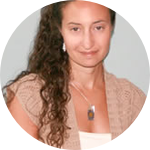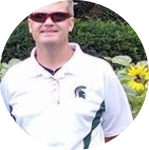About This Project
Winterkill damage has an immense impact on the functionality of golf courses, athletic fields, and home lawns in the spring months. This research aims to evaluate how common turf products affect creeping bentgrass and poa annua survival of winterkill damage such as ice cover and ice encasement. The results will allow turfgrass research scientists to make better recommendations to turf managers on how to prepare turf for winter survival.Ask the Scientists
Join The DiscussionWhat is the context of this research?
Many turf managers were in a state of desperation this past spring. The drastically cold temperatures and precipitation of the winter of 2014 devastated turf areas around the country. For example, golf course superintendents in MI and around the country suffered great economic loss. Significant ice accumulation occurred on golf course greens and lasted for extended periods of time. Many highly damaged golf courses had to construct temporary putting greens, remain unopened for play until early to mid-summer, or shut down completely for the summer to renovate the greens. This caused significant economic loss due to the need for labor but lack of golf play revenue. Unfortunately, it is only a matter of time before a winter just as harsh happens again.
What is the significance of this project?
If you are a golfer, an athlete, a turf manager, or just love grass, this experiment is for you! Turf researchers want to help provide answers about management techniques to prevent severe winterkill damage from occurring again. The research proposed here is critical to understand whether chemical based applications could help prepare or hinder your turf for winter survival a.k.a allow you to play next spring! We will investigate application of PGRs, fungicides, and oil-based compounds to determine whether they will have a beneficial, detrimental, or no effect on turfgrass survival of harsh winter conditions. The results and information that will be obtained from this study will be disseminated to the turfgrass industry as soon as possible in case a 'winter of 2014' happens again soon.
What are the goals of the project?
We will investigate label recommended rates of Syngenta compounds (Daconil Action, Heritage TL, Daconil Action + Primo Maxx, Daconil Action + Heritage TL, Heritage TL + Primo Maxx), Civitas, Mefluidide, and Propiconazole for cold temperature and ice cover survival of creeping bentgrass and poa annua. Turf plots have been treated with the compounds in the fall of 2014. Turf plugs will be taken from the field and evaluated in a low temperature growth chamber after 20, 40, 60, and 100 d of ice in the winter of 2014 - spring 2015.
Budget
A significant amount of labor is needed to conduct this research and funding help from you is urgently needed to support the student! All equipment and chemicals needed to conduct the experiment have already been acquired.
Meet the Team
Team Bio
Dr. Emily Merewitz is an assistant professor at Michigan State University. She has expertise in turfgrass physiology particularly related to environmental stresses. She received her doctoral degree from Rutgers University.Kevin W. Frank, Ph.D., is an associate professor at MSU who has been researching various aspects of winterkill and reestablishment since 2000 and has documented the devastating winterkill of 2013-2014 at www.msuturf.blogspot.com.
Kevin Laskowski is a graduate student working towards a doctoral degree. He was born in Port Huron, MI. Kevin received a BS degree in Biochemistry and Molecular Biology from MSU. He started working at the MSU Hancock Turfgrass Research Farm in 2011. Since then he has survived many MI winters, witnessing extreme damage to turfgrass areas on the farm. He has a strong desire to conduct winterkill research to help provide answers to questions related to management to prevent winterkill damage.
Kevin Laskowski
Born and raised in Michigan. Received my B.S. degree in Biochemistry and Molecular Biology from Michigan State University. I started working in turfgrass research in 2011 and have been there ever since. Currently I am a graduate research assistant working in turfgrass physiology at Michigan State University.
Lab Notes
Nothing posted yet.
Project Backers
- 2Backers
- 6%Funded
- $300Total Donations
- $150.00Average Donation


